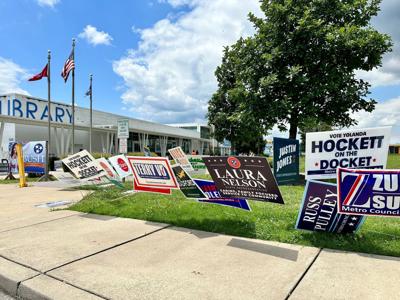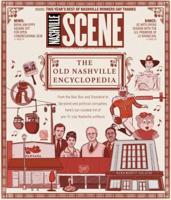On Thursday, Aug. 3, Election Day voters in Nashville will take to the polls to select a mayor, a vice mayor and a new Metro Council.
A total of 57,461 Nashvillians voted in July’s two-week early voting period. That’s roughly 14 percent of Nashville’s 413,981 active registered voters. The good news? That’s up from 2019, when just shy of 49,000 voters turned out to vote early in the city’s Metro elections. That year, then-incumbent Mayor David Briley edged out conservative third-place finisher Carol Swain to make it to a runoff with then-Metro Councilmember John Cooper. (Democratic state Rep. John Ray Clemmons finished a somewhat-distant fourth.) We all know what happened next: Cooper beat the pants off Briley in the runoff — by roughly 39 percentage points.
And after a term besieged by natural disasters, a terrorist bombing and a global pandemic, Cooper announced in January that he would not seek reelection. A dozen candidates ultimately qualified to run for mayor by the May 18 deadline, and after an inordinate number of forums, the field began to take shape. Polling and fundraising numbers established Metro Councilmember Freddie O’Connell, former MDHA official Matt Wiltshire, state Sen. Jeff Yarbro, and Republican operative Alice Rolli as the frontrunners. After spending $2 million of his own money on the race, former AllianceBernstein exec Jim Gingrich dropped out in July — but not soon enough to keep his name off the ballot.
If none of the 2023 mayoral candidates earns more than 50 percent of the vote — and considering the fact that there are 12 names on the ballot, it’s incredibly unlikely that any will — the top two vote-getters will head to the runoff. Early voting for the runoff will take place from Aug. 25 to Sept. 9, with Election Day to follow on Sept. 14.
A runoff among the city’s Metro Council at-large candidates is extremely likely as well, though that will be a bit more complicated. The section of the Metro Charter about at-large runoffs is vexingly written. (“For the purpose of this section, ‘the total vote cast for the office of councilmembers-at-large’ shall be deemed to be one-fifth of the aggregate number of votes received by all candidates for the office of councilmembers-at-large,” reads one portion.) Written as simply as possible: Any candidate who gets at least 10 percent of the total vote will avoid a runoff, but most likely, we’ll see the current field of 21 candidates slashed down to 10, eight or even fewer as some of the top vote-getters race for the remaining open seats.
Runoffs are possible in the Metro Council district races as well. A candidate must receive at least 50 percent of the vote in their district, meaning crowded races — like in Districts 1 and 29 — might see September faceoffs between the top two vote-getters.
When it comes to the vice mayoral race, mercifully, only two candidates are running, and thus a runoff won’t be necessary. Whoever gets more votes on Aug. 3 — incumbent Vice Mayor Jim Shulman or term-limited Metro Councilmember Angie Henderson — will win outright.
Find more info, from interviews and financial disclosures to analysis and more, at nashvillescene.com/elections — and follow along with us there on election night.





